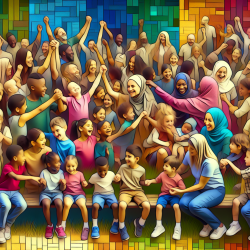Migrant children face unique challenges as they transition from rural to urban environments. The study "Perceived Discrimination, Schooling Arrangements and Psychological Adjustments of Rural-to-Urban Migrant Children in Beijing, China" sheds light on the psychological hurdles these children encounter. By understanding these challenges, practitioners can better support migrant children and foster their psychological well-being.
The Study's Key Findings
The research examined 657 migrant children in Beijing, focusing on their experiences of perceived discrimination and their schooling arrangements. The findings revealed that:
- Migrant children attending migrant-specific schools (MCS) reported higher levels of social anxiety, depression, and loneliness compared to those in public schools.
- Children who experienced high levels of perceived discrimination exhibited greater psychological adjustment issues.
- A significant interaction was found between perceived discrimination and schooling arrangements on loneliness.
The Role of Perceived Discrimination
Migrant children often face discrimination due to their socioeconomic status, accent, and other perceived differences. This discrimination significantly impacts their mental health, leading to increased anxiety, depression, and loneliness. Practitioners should be aware of these factors when working with migrant children and strive to create a supportive environment that mitigates these negative effects.
The Influence of Schooling Arrangements
The study highlights the disparities between public schools and MCS. Children in MCS often come from families with lower socioeconomic status and face more significant educational challenges. These factors contribute to poorer psychological outcomes. Practitioners can advocate for better resources and support systems within MCS to help bridge this gap.
Practical Implications for Practitioners
Practitioners can play a crucial role in improving the psychological well-being of migrant children by:
- Developing targeted interventions: Create programs that specifically address the needs of migrant children facing discrimination.
- Enhancing school environments: Work with schools to foster inclusive atmospheres that reduce feelings of isolation among migrant children.
- Advocating for policy changes: Push for policies that provide equal educational opportunities for all children, regardless of their background.










